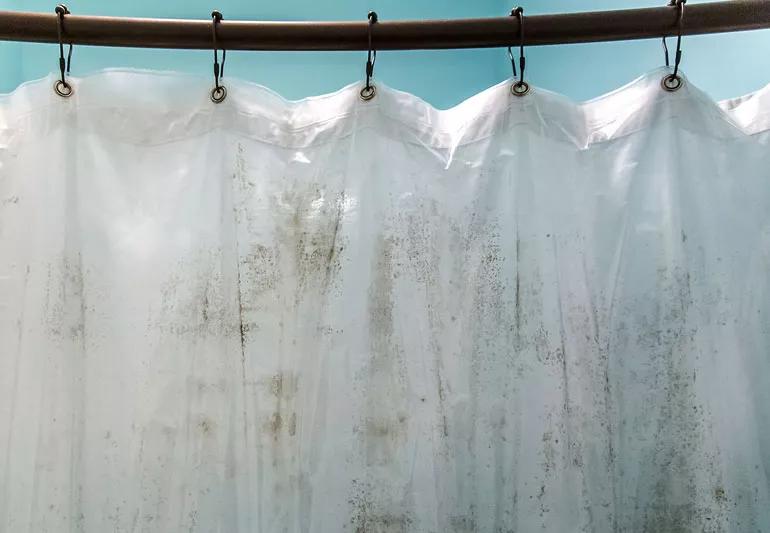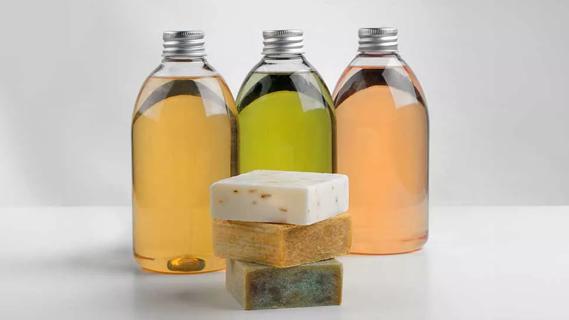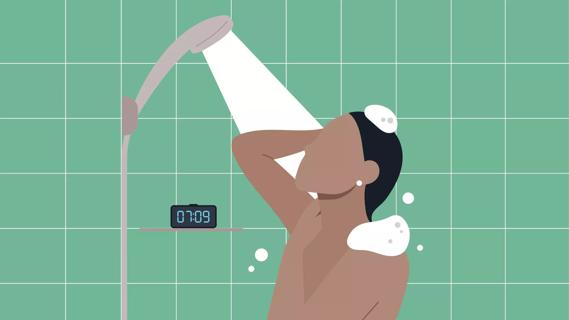Three strategies to keep your shower a safe haven

Your shower. It’s a welcome reprieve from the real world, where you let all your stress and anxiety wash down the drain.
Advertisement
Cleveland Clinic is a non-profit academic medical center. Advertising on our site helps support our mission. We do not endorse non-Cleveland Clinic products or services. Policy
Well, until you read that showers and shower liners are harboring unseen nastiness, which brings on full-blown panic. Is the shower yet another thing we need to worry about?
“If you’re a healthy person, then worrying about your shower curtain shouldn’t keep you up at night,” says family medicine doctor Jeffrey Brown, DO. “There’s probably little likelihood that your shower or shower curtain will make you sick.”
According to Dr. Brown, all kinds of bacteria and mold form on shower curtains and liners, but the most common type is the kind that causes body odor. However, if you have a suppressed immune system, you may have a greater risk of infection, so ask your doctor if you need to take extra shower precautions.
Dr. Brown says that for the most part, the bacteria in your shower doesn’t pose a significant threat. The only way to get sick is if you happened to inhale the bacteria deeply. And even if this did occur, Dr. Brown says it most likely wouldn’t lead to infection in a healthy person.
Dr. Brown suggests three actions you can take to keep your shower the sanctuary you need it to be:
“I recommend replacing your shower liner every six months to a year,” says Dr. Brown. “Alternatively, you can pop it in the washing machine and run a rinse cycle with bleach or vinegar. Then, hang it on the line outside or back in the shower to dry.”
Advertisement
Dr. Brown doesn’t recommend standing in the shower and spraying your shower curtain with a cleaning solution. In a twist of cleaning irony, inhaling the cleaner is worse for you than the dirty shower liner.
Dr. Brown suggests cleaning your bathtub and shower walls with an all-purpose bleach cleaner every week, which will keep surfaces clean enough for a baby’s bottom. Spray the solution on the surface and let it sit for 10 to 15 seconds so it can kill any lingering bacteria. Next, wipe down the shower and tub surfaces, then rinse.
“Studies have shown that when you flush the toilet, the water mist can spray up to six feet,” says Dr. Brown. “If your toilet is situated next to the shower, you increase the likelihood that the toilet water can touch the shower curtain or surround.”
So close the toilet lid before you flush to keep the mist contained.
“The most important thing to think about is proper hygiene,” says Dr. Brown. “We often spend time and energy feeling anxious about things that won’t make us sick. It’s more effective to focus on the daily activities we can take to minimize the risk of infection.”
Your go-to bathroom routine should include:
Advertisement
Learn more about our editorial process.
Advertisement

Bathing once a day is the general guidance, but you could also have reasons to soap up twice a day or not at all

You’re sharing your sheets with dust mites, bacteria and lots of dead skin, so you’ll want to keep your bedding fresh

You may notice itching, redness and swelling after wearing or using laundered items

We don’t fully understand how cleanliness impacts immune system development, but we do know that preventing illness is important

How often you lather up your locks can depend on various factors, like hair type, age and ethnicity

An icy blast may boost mental clarity, increase circulation and give your skin a little glow — but don’t overdo it

This olive oil-based soap is generally mild and safe when diluted

It’s a wash — when you bathe is a personal preference

Wearing a scarf, adjusting your outdoor activities and following your asthma treatment plan can help limit breathing problems

Your diet in the weeks, days and hours ahead of your race can power you to the finish line

When someone guilt trips you, they’re using emotionally manipulative behavior to try to get you to act a certain way